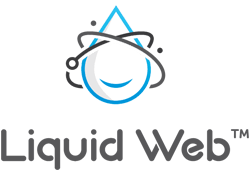
Ever wonder how site speed affects SEO? Start by understanding your organic traffic.
One of the primary drivers of traffic to your website is organic traffic, which represents the visitors that find your site by searching for you on search engines such as Google or Bing.
As of 2014, approximately half of all traffic came from search engines.”
Even as social media shares and other traffic sources increase in importance, search engines continue to drive how people discover what they are looking for online.
As a result, it is imperative that your website rank well whenever possible, which means speed matters. You never know when the next great potential partner or customer is looking for exactly what you offer!
Ranking on Search Engines
There are dozens, if not hundreds, of factors that go into how different sites and pages rank in search engines.
Backlinks or links from other sites play a role. Quality content shared via social media and on other websites plays a role. Regular content updates that show recency and thought leadership play a role.
But speed plays a big role in how your website ranks on search.”
Maybe you are thinking that creating great content will help you succeed in search engine rankings. Perhaps hundreds or thousands of links to your website will drive you to higher positions on the search engine results pages.
While this is undoubtedly true, speed is an equally important factor in where your website will rank among search results.
How Speed Factors into Search Rankings
When a website is slow to load and not performing well, visitors to that site are disappointed.
Imagine entering a query into a search engine, being presented with a result and…nothing happens. Four seconds…five seconds…ten seconds pass before you see the page to which you were sent finally load.

Not a great experience, right? You were left waiting and waiting for the information you requested. You might even think to yourself, “You know, my search engine could have given me a link to a page that loaded faster instead of wasting my time waiting on this page.”
And that’s exactly what search engines are now doing: giving the best possible option in terms of content, backlinks, and site speed.”
For good reason, search engines across the internet aren’t just evaluating the quality of resulting information, they are also evaluating how quickly that information can get to the person who asked for it in the first place.
A quality search result delivered quickly trumps a slow loading page that forces the user to wait.
The Business of Search
Search engines large and small have always existed with one core goal in mind: help the user find the information they are looking for.
Those search engines are optimized to be accurate in their results and fast to provide information. As a result, when search engine spiders are scouring the web and indexing site pages, they are now weighing how fast those pages loaded in their evaluations.
This weighting makes sense. No one wants to look for information on Google or Bing or DuckDuckGo and then have to wait for the results, especially when another search engine is just a few clicks away.
Search engine spiders and indexing algorithms aren’t just looking for quality content. They are also looking for content that loads quickly, giving the searcher what they are looking for FAST.

How Infrastructure Affects Site Speed
Site speed is critical when it comes to engaging visitors, as well as in SEO value.
The first place to look when it comes to optimizing website speed is with your web host. If your website is hosted on infrastructure that lacks power, capacity, and/or bandwidth, then you can be sure that it will load slower than it could with the right infrastructure.
You can have clean code, optimized images, and everything else set up properly with your CMS, but without the right infrastructure your website will perform slowly.”
Conversely, a site that has code challenges, large images and heavy integrations CAN find substantial performance increases with the right hosting infrastructure. We believe that approaching performance holistically is the best path.
Given the choice of digging into code or choosing better infrastructure, you are likely to see greater gains sooner with a better web host.
What You Can Do to Improve Site Performance
When considering the hundreds of thousands of websites we help power every day, there are a few things we can share that owners and publishers can do to improve performance.
- First, the use of a Content Delivery Network (CDN) will put the static assets of your website on servers closer to site visitors. This means things like images and text will load quickly for visitors all around the globe by using a CDN.
- Second, optimizing images through compression or lazy-loader plugins will decrease load times without negatively impacting image quality. Images are quite often the bottleneck on site speed and performance. Optimizing images to load quickly can cure what ails even the slowest website.
- Third, many websites have code that isn’t required or functional. Removing any extra or unnecessary code will decrease page size and thus decrease page load times.
Combining these three things should lead your site to performing better than ever before.
Of critical importance aside from your site itself is your choice of infrastructure. In fact, without proper infrastructure powering your digital properties, all of the code enhancements and optimizations will provide limited improvement.
The right server and server configuration play a key role in your site’s performance.
Racing to Peak Performance
To use a metaphor, imagine a sports car with a new paint job, great tires, and fancy leather seats as your website. Now imagine that the engine powering your sports car is small, old, and improperly maintained.

In this scenario, it doesn’t matter what you do to the rest of the car. Without a better engine, there is only so fast you can go and so long you can drive before things fall apart completely. Conversely, a car in need of a new paint job and some seat patching can race past the competition with the right engine, or infrastructure, under the hood.
And so it is with your infrastructure or hosting provider.
Without the proper infrastructure in place, it doesn’t matter what you do to your website; there will come a point that it simply cannot perform any better. Yes, optimizing images and utilizing a content delivery network will improve website performance.
But even those tactics have a ceiling.
Without the right infrastructure your website will face a ceiling on performance.
The foundation of a successful search engine optimization strategy can be found in the strength of your hosting infrastructure. The right infrastructure can help propel you to higher search engine rankings and increased organic traffic.”
Free 7-Point Infrastructure Assessment
Test the performance of your website and discover areas of opportunity for improving site performance using VMware Cloud Hosting.
[ad_2]
Source link

![Site Speed and SEO [What Search Engines Prefer]](https://dealzclick.com/wp-content/uploads/2022/02/Asus-ExpertBook-B1400-With-Intel-Core-Tiger-Lake-Processors-Optional.jpg)
![Site Speed and SEO [What Search Engines Prefer]](https://dealzclick.com/wp-content/uploads/2022/02/Baseball-History-19th-Century-Baseball.jpg)



